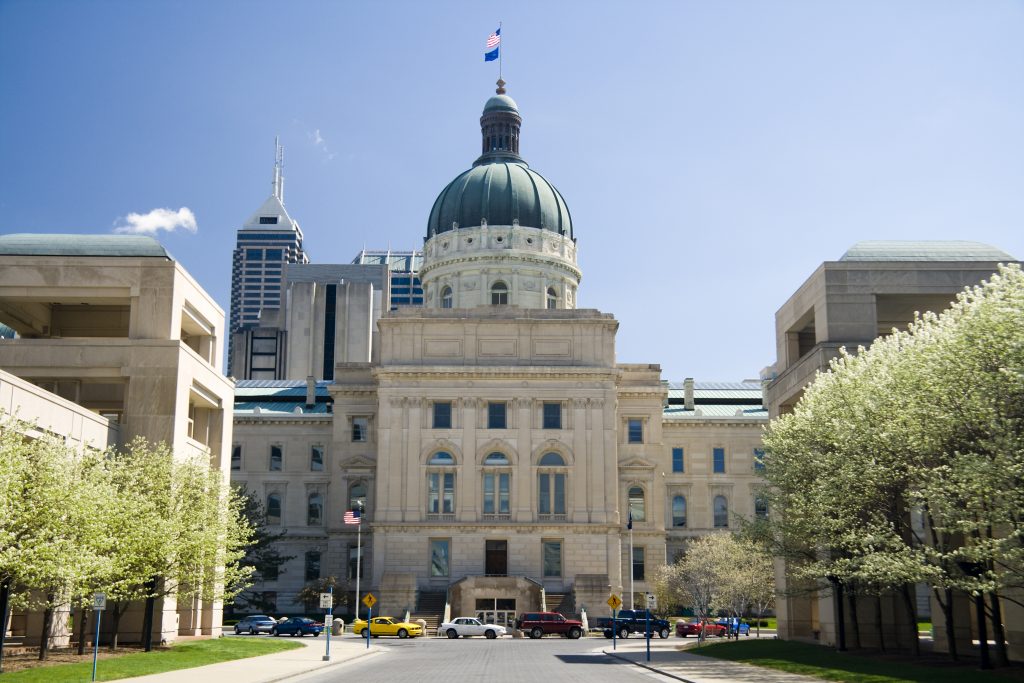Subscriber Benefit
As a subscriber you can listen to articles at work, in the car, or while you work out. Subscribe NowThe state’s April Medicaid expenditure forecast missed the mark by roughly $984 million due to a combination of state budget reversions and unexpected growth of services for aging and disabled Hoosiers, leaving a state agency scrambling for a solution as lawmakers consider how much to cover from the state’s reserve funds.
Sen. Ryan Mishler, the key budget architect for the Senate Republicans, cautioned that Indiana’s finances won’t be immediately impacted. But the long-term spending plan for the Family and Social Services Administration, which oversees Medicaid, may be.

“I’m concerned about the long haul, but in the short haul … we’ll work with FSSA on some solutions and we do have a pretty positive reserve,” said Mishler, R-Mishawaka. “Remember this forecast, this is long-term. Currently we’re in good shape. Fortunately, we have a year before the next budget to work on this.”
Cris Johnston, director of the Office of Management and Budget, noted challenges with getting timely forecasting data for Medicaid claims.
“It also happened to be the same time that increased utilization of services, as well as enrollment, was occurring with that expenditure base. All of that together prompted this challenge,” Johnston said. “I think part of the long term is changing those practices (and) looking at more timely information. Also … challenging assumptions that are going into this forecast with what is really happening on the ground.”
The state’s two-year budget, passed by lawmakers in April, relies heavily on forecasted expenses and revenues to make appropriations. However, lawmakers noted that the bill isn’t immediately due and flagged increasing Medicaid costs for future concerns, while FSSA committed to increasing scrutiny of ongoing claims for services to try to bring costs down.
Budget reversions, growing costs
State Budget Director Zac Jackson said he’d learned about the calculation mistake roughly two weeks ago: that the rosy April 2023 forecast predicted a $570 million surplus, prompting a $525 million reversion to the general fund.
“With this revised forecast, you can see we probably over-reverted,” Jackson said.
Gov. Eric Holcomb said the Medicaid update reveals “there is work to be done. We have begun a deep dive to understand the factors driving the spending increases and what is causing the unanticipated growth. In the meantime, we will be able to mitigate the fiscal impact while continuing to deliver needed services thanks to a healthy reserve.”
Jackson pointed to the use of data that was months old, saying the April forecast depended upon January Medicaid claims data rather than more current numbers.
To correct the above, $271 million will go back to Medicaid from the General Fund, Jackson said.
But the single biggest difference in forecasts came from an unanticipated demand for Home- and Community-Based Services and other Long-Term Supports and Services, which include institutional care like nursing homes and assisted living facilities.
Testimony from FSSA seemed to indicate a reliance on pre-pandemic use rates for such programs, even as demand surged during and after the COVID-19 pandemic even after federal funds expired, leaving the state to shoulder the unanticipated cost.
“… The cost for nursing facilities are largely based on cost-based reimbursement and the rate of change and the costs are not known with certainty at the time of the forecast,” said Jeremy Palmer, an actuary with Milliman presenting on behalf of FSSA. “Additionally, for HCBSs we are continuing to observe cost increases to an unanticipated level.”
Smaller factors include increased Medicaid rates for physicians and Applied Behavioral Analysis therapy as well as the decrease of certain federal pandemic funds.
In the past, the state aimed to have the equivalent of roughly 10%-12.5% of expenses in reserves, but that funding will dip depending on the Medicaid need.
“This reflects the wisdom of retaining 10%-12.5%. … We’ve been doing that (for) economic declines. Frankly, this was a forecasting error and thankfully we had sufficient reserves to absorb that $984 million impact,” Jackson said.
But Rep. Ed DeLaney, D-Indianapolis, decried the use of reserves for “accounting errors.”
“I was not aware until today that the purpose of the surplus was to cover accounting errors,” he said.
Ongoing concerns
For at least one member, the unanticipated cost demonstrated ongoing concerns about growing Medicaid expenditures.
Back in April, following the first forecast, Mishler was concerned about the 2% growth in Medicaid spending as education spending fell by 2%.
“That 2% increase (from April) was short,” said Mishler. “We have to get a handle on this. If we don’t, it has the potential to blow up our budget. … This cannot happen again.”
Mishler said there were budget items he personally would have reconsidered had the April forecast reflected the additional millions needed.
“There’s going to be some tough decisions ahead,” Johnston agreed.
This comes as lawmakers continue to take aim at high health care costs, which some say are a result of the state’s low Medicaid reimbursement rates.
“This is why we don’t want to open the budget in a nonbudget year,” Mishler said, advising lawmakers against Medicaid expansion or other budgetary measures in 2024. “I prefer to keep the budget closed this year and not have any more spending until we see how things go.”
The Indiana Capital Chronicle is an independent, not-for-profit news organization that covers state government, policy and elections.
Please enable JavaScript to view this content.

